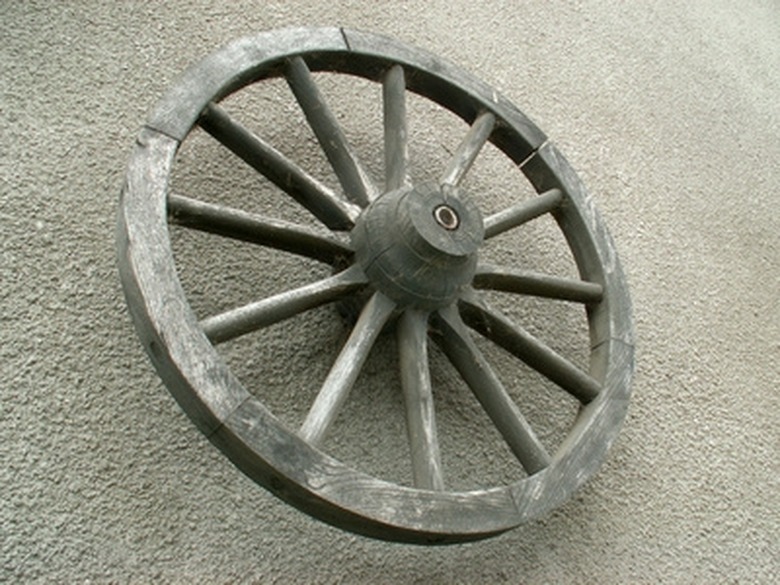How Does The Force Of Momentum Affect An Object In Motion?
Momentum describes an object in motion and is determined by the product of two variables: mass and velocity. Mass — the weight of an object — is usually measured in kilograms or grams for momentum problems. Velocity is the measure of distance traveled over time and is normally reported in meters per second. Examining the possible changes in these two variables identifies the different effects momentum can have on an object in motion.
Changes in Mass
Changes in Mass
An object's mass and momentum are directly related; as mass increases, momentum will have a corresponding increase, assuming a constant velocity. Thus, an object with twice the mass of another object — moving at the same speed and in the same direction — will have twice the momentum.
Vector Quantity
Vector Quantity
Momentum is vector quantity, meaning that the direction of the object is important in the calculation. An object can have both vertical and horizontal velocity. Therefore, the magnitude and direction of the velocity must be taken into account when describing an object's momentum. For example, an object shot from a cannon will have both a vertical and horizontal velocity as it reaches its highest point. Both types of velocity will affect the momentum of the object.
Acceleration and Momentum
Acceleration and Momentum
Acceleration is the change in velocity over time. An object that is accelerating, therefore, has an increasing velocity and increasing momentum. A decelerating object has a decreasing velocity and will lose momentum over time. An object in motion with zero acceleration will have a constant velocity and thus have a constant momentum.
Conservation of Momentum
Conservation of Momentum
Momentum is a conservative property; that is, in a closed system, momentum can be transferred from one object to another. Thus, for two objects colliding in a closed system, the momentum lost by one object is gained by the other object. For example, two objects with the same mass are headed toward one another at different velocities. When they collide, the object with the higher velocity, and thus greater momentum, will transfer more energy to the slower object than vice versa. After the collision, the object with the slower initial velocity will move away with a higher velocity, and momentum, than the object with the higher initial velocity. This conservation of momentum is a very important concept in physics.
Cite This Article
MLA
Perdue, Matthew. "How Does The Force Of Momentum Affect An Object In Motion?" sciencing.com, https://www.sciencing.com/force-momentum-affect-object-motion-8600574/. 24 April 2017.
APA
Perdue, Matthew. (2017, April 24). How Does The Force Of Momentum Affect An Object In Motion?. sciencing.com. Retrieved from https://www.sciencing.com/force-momentum-affect-object-motion-8600574/
Chicago
Perdue, Matthew. How Does The Force Of Momentum Affect An Object In Motion? last modified March 24, 2022. https://www.sciencing.com/force-momentum-affect-object-motion-8600574/
